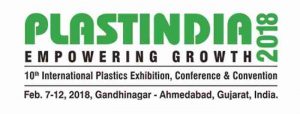Being one of the first manufacturers of BOPP in the country, the initial years were challenging since customer awareness for the new product did not exist. Print lamination and self-adhesive packaging tapes were the first target segments and once established, the company grew quickly with the second and third line commissioned at Waluj. Reports Harveer Sahni
Ashok Jaipuria lead Cosmo Films, headquartered in New Delhi, is one of the largest manufacturers of Biaxially Oriented Poly Propylene (BOPP) films in the world. From an elite Marwari family, Jaipuria is the only son of the late Sitaram Jaipuria, the promoter of public limited companies Swadeshi Polytex and Swadeshi Cotton Mills, and a Rajya Sabha member of Parliament.
Qualified in business administration and marketing, Ashok Jaipuria started Cosmo Films in 1976 to manufacture and market BOPP films by acquiring a manufacturing license which was needed in those days. In 1981 he set up and commissioned his first BOPP production line in at Chikalthana in Aurangabad. Being one of the first manufacturers of BOPP in India, the initial years were a challenge, since customer awareness for the new product did not exist. Print lamination and self-adhesive packaging tapes were the first target segments for the company and once established there was no looking back. The second BOPP line was commissioned at Waluj in Aurangabad in 1988, and the third line also at Waluj in 1996.
Entering the new millennium, Cosmo Films was steadily growing, as was the market for BOPP and Cosmo’s market share. With a positive market situation, the company registered unprecedented growth. In 2001, the company commissioned its fourth line; and, in 2002, Cosmo acquired its fifth BOPP line which came as a part of its acquisition of the Karjan Vadodara based BOPP manufacturer Gujarat Propack Limited.
A sixth BOPP line was commissioned in 2003 and in the very next year 2004, Cosmo decided to add BOPP specialties by commissioning a metalizer, an extrusion coating plant. Yet another BOPP line took these manufacturing lines to seven. Expanding in coated products, the company commissioned its second extrusion coating lines in 2005. Encouraged by its success, Cosmo added five more extrusion coating lines – two in 2006, one in 2007 and two more in 2008.
Extending its footprint globally, in 2009 Cosmo acquired USA-headquartered GBC’s print finishing business from Acco Brands Corporation. In that year yet another BOPP line was added at Vadodara, taking the total to 8 lines. The company wrapped up the decade by installing its second metalizer at Karjan, Vadodara.
In the second decade of the millennium, Cosmo continued its growth trajectory with Pankaj Poddar taking charge as its CEO in 2011. In the ensuing years a new plant was commissioned in South Korea with the company’s eighth extrusion thermal coating line. BOPP lines were added in the Aurangabad SEZ and at Karjan in Vadodara taking the BOPP production lines to ten, the coating lines to five, a Cast Polypropylene (CPP) line and three metalizers.
When its first line was commissioned Cosmo’s annual capacity was only 850 tons, which has now reached 200,000 tons coming from five locations — three in India, one in South Korea and one in the USA. While the biggest site is in Vadodara, altogether the Indian production sites cover 100 acres of land and 850 permanent employees.
While the high growth of BOPP volumes came from packaging and lamination, the business became more competitive over the years. To maintain its leadership and profitability, Cosmo shifted focus to specialty films and label films for wrap around labels, in-mold labels, and in a limited way to self-adhesive labels, even in the 1990’s. Right from the start, white film for Parle and the production of synthetic paper was vital in the company’s rapid growth.
With Pankaj Poddar’s leadership, the company became more aggressive, especially in the label segment comprising self-adhesive labels, wrap around labels and IML which are continuously growing. Cosmo supplies these films worldwide with some sales in China as

Europe 2017
well. Leading Indian labelstock and label producers use Cosmo’s products and label films have become a substantial part of the company’s product offering taking up around 15% of its total production.
Cosmo has continuously invested in creating the right products to facilitate top of the line decorative packaging. It offers white opaque, pearlised, transparent, solid white, gloss, matt and metalized films. The films have a clean surface, are defect free with no gel particles and can be printed using various print processes including the use of water-based, UV, gravure inks, thermal transfer ribbon printing and some digital print processes.
According to Poddar, while the domestic BOPP market is growing at around 10% annually with growth in self adhesive labels and IML slightly higher, Cosmo is registering a higher growth rate due to increasing exports. It is committed to more and more diversification to specialty segments due to the depressed margins of commodity products in a competitive environment.
The company plans to soon launch new products such as direct thermal synthetic paper and direct thermal paper. Firmly committed to maintaining its leadership, the delivery of quality and innovative products is a priority. Cosmo has invested more than US$ 1.5 million in a new research, development and innovation center with a capability to analyse the entire surface, polymer and chemical attributes of a film from concept to end applications. Printing tests using screen, UV flexo, gravure, direct thermal and thermal transfer printing can be conducted in the new center.
Poddar is emphatic that BOPP consumption will continue to grow rapidly but still wants Cosmo to diversify even further to new specialty segments. The company plans to add cast polypropylene (CPP) and metalized CPP film lines in 2018 in addition to a PET film line. Both product lines will be packaging and label-centric with PET offered mainly as a label face and later for release liner applications.
PET liners can reduce the adverse environmental impact of liner waste by the use of thinner liners. While most of the currently used siliconised paper liners go to landfills, PET liners can be recycled. Capacity enhancement for synthetic paper is also on cards. Cosmo’s biggest competition at the global level comes from Jindal Polyfilms after Jindal’s acquisition of Exxon Mobil’s BOPP films division and from Innovia films. Poddar is undaunted, “We will be enhancing capacities and as for specialties, we have no real competition.” He hesitantly agrees that digital printing directly on product containers may be a challenge or even eliminate some substrates but is confident that this will not affect Cosmo’s immediate growth plans. Specialty films currently generate 40% of the company’s turnover, which Poddar hopes to increase to 60% with the intention of their better margins adding to the bottom line.
of Exxon Mobil’s BOPP films division and from Innovia films. Poddar is undaunted, “We will be enhancing capacities and as for specialties, we have no real competition.” He hesitantly agrees that digital printing directly on product containers may be a challenge or even eliminate some substrates but is confident that this will not affect Cosmo’s immediate growth plans. Specialty films currently generate 40% of the company’s turnover, which Poddar hopes to increase to 60% with the intention of their better margins adding to the bottom line.
Poddar says that in five years, Cosmo’s turnover will more than double from the current US$ 300 million to somewhere between US$ 600 to 700 million — essentially from the company’s organic growth. However, if the company is able to successfully come up with new projects and acquire businesses it could even reach a billion dollars in turnover.
company’s organic growth. However, if the company is able to successfully come up with new projects and acquire businesses it could even reach a billion dollars in turnover.
Written by Harveer Sahni Chairman of Weldon Celloplast. Edited by Naresh Khanna, editor of Packaging South Asia on 10 January 2018. Slight modified on 11 January 2018.











